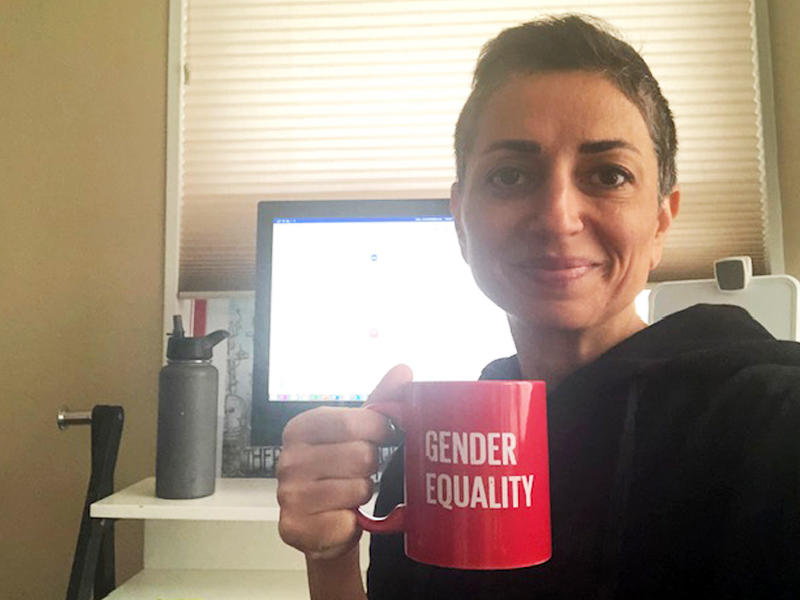Dr. Lina Abirafeh, Executive Director of the Arab Institute for Women
The case for flexible work cultures, and how for some women, home is not safe.
 After working in more humanitarian emergencies than I can count, I know what it is like to face limited movement, mandatory restrictions, and mass closures – in a way, life in lockdown reminds me of my time in the field.
After working in more humanitarian emergencies than I can count, I know what it is like to face limited movement, mandatory restrictions, and mass closures – in a way, life in lockdown reminds me of my time in the field.
So I’m in field-mode – working as best I can with what I have. Fortunately, I have a lot to do, and I’m more productive. I have replaced video calls with audio so I can walk around my apartment while I talk. “Walking meetings” are good for inspiration, but often lead to irresponsible snacking. What I miss about the office are the collective conversations, the meetings (sometimes!), the camaraderie, and the creative process that is fueled by group dynamics.
I think that working from home should become part of the culture of the university. If we were to advocate for work-life balance effectively, flexible work schedules and family-friendly (women-friendly!) work cultures should be part of our normal lives. It would make a great deal of difference for women, and probably keep them in the working world.
The most disturbing part of our lockdown is that for some women, home is not safe. Women who face intimate partner violence are now at greater risk, knowing, additionally, that violence might emerge where it didn’t previously exist. There are women who were already prisoners, such as migrant domestic workers who live in the homes of their employers, and those whose existing vulnerabilities will be magnified as a result of this crisis, such as refugee and minority women.
So, when I think of life under lockdown, I’m grateful for a space that is safe, a job that is secure, and a fridge that is (relatively) full. For many women, this crisis is felt in severe ways, and will continue even after the pandemic is over.